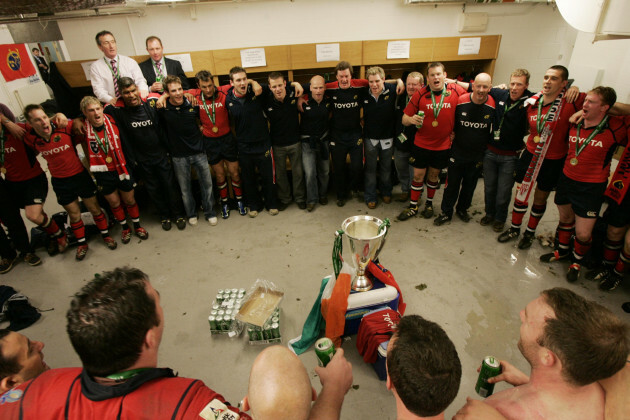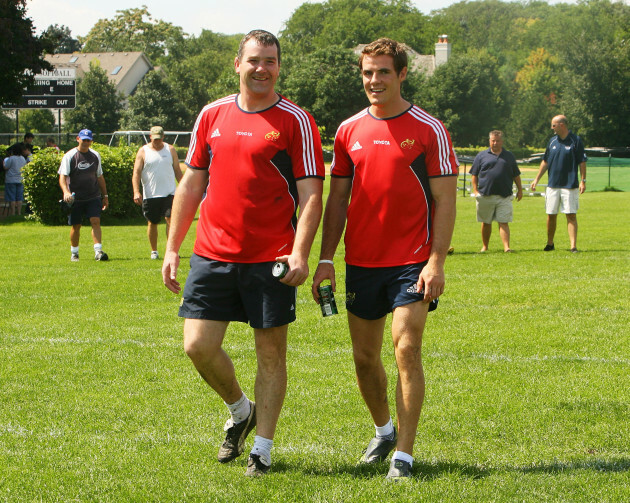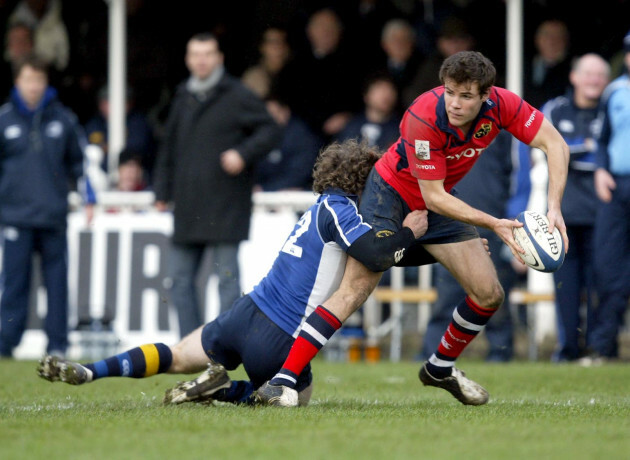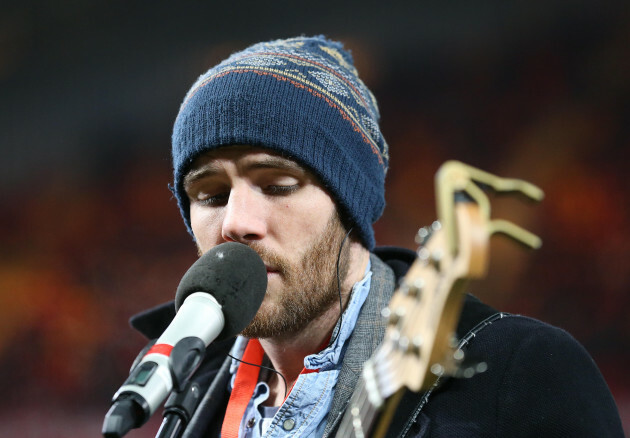News
I asked myself: ‘What else have I got?’
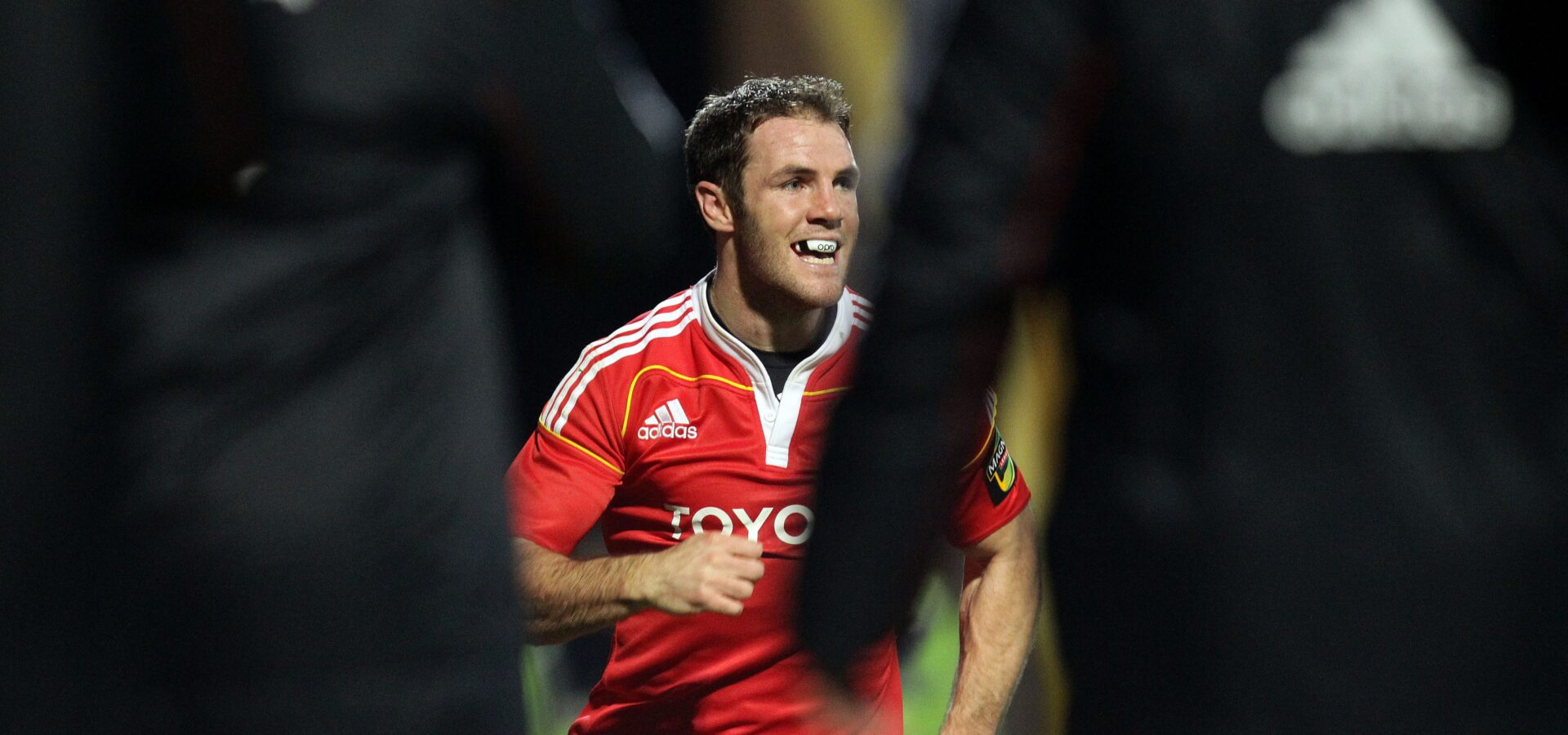
When he was 31, Barry Murphy was at the stage where he needed to see a psychologist.
All the dreams he ever had, the good ones and the bad, had come true. From initially hoping to just get one game for Munster, he ended up wearing the shirt 73 times. But nightmares followed, Murphy fearing this whole thing could end as suddenly as it began.
By 28 it had. He had suffered a leg-break in 2006; a dislocated ankle that same year; a broken hand in 2007; shoulder injuries, ankle ligament tears, and finally a foot injury that forced him, in 2011, to limp away from the game. The show was over, the curtains drawn.
“I never thought I’d make it as a pro, so I tried to keep telling myself I was lucky,” he says. Yet that wasn’t how he felt. A transition from a career in rugby to one in music meant he still had a crowd to entertain but when September 2014 came along, it was an audience of one he needed.
Declan Ahern, the Munster team psychologist, was the man he called, Murphy planning to tell Ahern how confused he felt, how the departure from a structured life as an athlete to a world where he had no boss, didn’t suit his personality.
“Lifestyle wise I probably went a little heavy on the wild side (after retiring),” Murphy says. “I still had it in my head that I could get back. There were some dark times but also some incredible times. Being in the band, I wouldn’t change that for anything. But this time eight years ago, I needed help.”
Ahern sat him down.
“Declan,” Murphy confessed, “I am absolutely all over the place.”
Ahern listened, the way the best sports psychologists do, and then asked one question, about the ankle injury that kept Murphy out of the 2006 Heineken Cup final.
“Is that really relevant?” Murphy asked.
Soon he realised it was, how the way he was feeling in 2014 had its origins in the things he missed out on in 2006, namely a place on the European Cup winning team, the chance to write his own name in history. “I never dealt with it at the time,” Murphy says.
Now he had to.
It was a September day, just like this one, and that’s no coincidence. All around Ireland this morning, there are countless former players going through a quiet kind of hell, knowing that as a new rugby campaign is about to kick off, their personal season is in eternal winter, a sporting Arendelle.
They all suffer. The Barry Murphys, the Brian O’Driscolls. “My worst fear,” O’Driscoll told Richie Sadlier on BT Sport earlier this week, “is that life has peaked.”
For Murphy, it wasn’t just that. It was the fact he’d sat in the stand for the 2006 Heineken Cup final when he could have been on the pitch; the fact he had found confidence at 28 after a decade of doubt, the end coming just as his form was peaking; the fact he just didn’t know what to do with his life.
“I asked myself, ‘fuck, what else have I got apart from rugby? What do I do financially?’ School hadn’t gone great for me and that time I retired, I never thought music could become my career.
“I felt a little bit lost because when your purpose in life goes, nothing can prepare you for that.”
It’s why he wants to tell his story, why he wants to sell the virtues of Rugby Players Ireland, the players body who are constantly preparing Ireland’s rugby players for the sporting afterlife, and who are there for the ex-player when the rest of the world has moved on to someone else.
Closer to home, someone else also had his back.
In a sense it was an odd friendship, Murphy’s career starting just as Anthony Foley’s was winding down, and yet they clicked. As captain, Foley liked the way Murphy behaved in the dressing room, ‘flying under the radar, yet able to show he could be a bit of craic’.
“It was an incredible place,” Murphy says of that Munster dressing room of ’06 and ‘08. There was such a perfect balance of craic and seriousness. There was maturity when it came to match-day, a cold ruthlessness to what we did; and then there was this absolute immaturity on training days, 40 lads farting and messing.
“I’m not sure people realise what it was really like in there. Take Donners (Donnacha O’Callaghan) as a prime example. Because he’d have a laugh and a joke, people on the outside thought he was a class clown; but he was easily the most professional player I ever met.”
Then there was Foley and Ronan O’Gara. “Those two could stump you, time after time. What they said (to the group) was so accurate, so well timed. Something I would never have thought of; those guys were so good at articulating to the group. I loved being there for that. I loved being a part of it.”
And yet it so nearly didn’t happen.
**
A carefree 19-year-old stood in the hallway of an apartment in Cape Cod and stared out onto the Atlantic Ocean. It was 2004.
He had finished school a year earlier; picked up work driving a van around Limerick, had fallen back in love with rugby after escaping the pressurised nature of the schools game, and had excelled in a Munster trial just before he collected his J1 for a summer of fun in the States.
There was something about the US he loved, its vastness, its climate, its nightlife. He’d been there about six weeks when a call came through.
It was his father. “There’s a letter for you here; (Munster Under) 20s want you for a second trial.”
He didn’t want to go. Everything a 19-year-old could want, the sun, the surf, he had here.
So he stayed. A day later the phone rang again. This time it was his uncle.
“Barry,” he said, half-joking, half-serious, “if you ever want your dad to speak to you again, come home for that trial.”
If this was a third-rate Hollywood movie, the camera would focus its lens on a pensive Murphy deliberating over his uncle’s words. You’d see his furrowed brow and flashbacks to earlier moments, when father and son travelled across to London for the 2000 Heineken Cup final.
A narrator would tell a story about his father touring New Zealand in the ’70s with his club; about being in Thomond Park for that match in 1978, about passing on his love of sport to his son. You’d hear the son say, ‘I’ll do it for pop!”
But that’s not how it happened.
“I ran out of fucking money!”
So he came back, got through the trial, made the Munster Under 20s team, won the interpros, got picked by Ireland and earned a contract worth €7,000-a-year with the senior Munster squad – ‘a fortune as far as I was concerned’.
And that was when he started writing his journal.
Reading back on it now, he can see the underlying themes. Confidence was an issue. He suffered from imposter syndrome and also suffered from Alan Gaffney’s tough love.
“He was a typical Australian and they fucking go to town on you if you are not at the level you need to be; they will pick you out and make an example of you. I was not able for that.
“It nearly broke me in my first year because I didn’t have the confidence, the skill level to come straight in at the deep end (of professional rugby). I found it a pretty harrowing experience. I thought I might be out the door but they gave me another development contract the following year.”
And then Declan Kidney came in.
On day one of his Second Coming, he pulled Murphy aside. “Just enjoy yourself, boy, do what you did at Munchins.”
In many ways this is a typical Declan Kidney story. On one level, there’s so little detail to what he had to say; and yet the words were transformative.
It’s something we hear all the time, how a shy, awkward, balding middle-aged man who, by all accounts, wasn’t a terrific coach, could easily connect with players half his age, intuitively knowing what to say and when to say it.
“Some players around Deccie would probably have found his lack of detail frustrating, the likes of ROG, players coming back, say, from a Lions tour. You see, Deccie wasn’t a Joe Schmidt kind of coach.
“But he’s one of the smartest men you’ll ever meet. At that stage of my career, I needed the friendly face, the guy who knew my da and knew what I was about. It was comforting to have him there. I certainly did not need someone telling me I was shit.
“Now by the time I was 27, and my confidence levels had grown, I probably yearned for a Joe Schmidt sort of fella. I was raging that I never got to work with Schmidt because I heard all about his detail. I’d have happily had him scream at me to do things a certain way, because by that age I would have been strong enough to take it.”
A glance over his journals outlines how he’d transitioned from unsure newcomer into a fella who felt capable of ‘grabbing a game by the scruff of the neck, becoming a potential Munster captain.’
“It took me a long time to realise I was good enough. For too long, I was trying to be like (Lifeimi) Mafi and (Rua) Tipoki.”
– “Why don’t you try being like Barry Murphy.”
That was Foley’s advice. He always chose his words carefully.
When that foot injury finished Murphy’s career in 2011, it was Foley who kept picking up the phone. “Meet you for lunch, Barry?” “Wanna play five-a-side out here in Killaloe on a Tuesday?”
Septembers came and went.
He learned to hate the month because September was when everyone was counting down the days to the next rugby season whereas he was counting the years since he last played, knowing the one thing he ‘was good at, confident at’ had passed.
Ahern, the psychologist, helped. So did the band, Hermitage Green. So did becoming a husband and a father. So did the passing of time.
One September he stopped hurting. He was 35. All his peers had retired by then, too.
He started feeling better about himself, started working with former Ireland winger, Andrew Trimble, quickly becoming best friends and co-hosts of a brilliant rugby podcast, Potholes and Penquins.
Yet there was a new sore that wouldn’t heal. Foley, the one who’d looked out for him, was gone.
Being a musician, it was almost inevitable he’d be asked to write a song about his friend. It took him five years to finish it.
“It was a tough thing to do. I tried writing it from perspective of how everyone else felt about Axel (Foley). That didn’t work. So I wrote it from my own experiences but the thing is that when you write, you have to sit with the sadness of (Anthony’s passing). That took its toll because it brought you somewhere you wouldn’t normally go to when you are grieving.”
Initially the song was to be played just for Anthony’s sister but soon it was clear that it could do well as a fundraiser for charity, adding a whole new level of anxiety to Murphy. “Will it be good enough to represent Axel?”
The response overwhelmed him.
“I find it so hard to listen to the song because when I hear it, you are reminded he is gone. I know how much sadness it brings to me. I find it a bit difficult that people close to Axel might hear it and be saddened. That might be a weird thing for people to hear me say about my own song. But that’s how I think about it because he just meant so much to me as a friend. I miss him a lot.”
These days he no longer misses playing the way he once did.
These days September is no longer a hard time of year. Like everyone else, next weekend, the opening one of the season, is something he’s excited by. Once upon a time, this was a week that hurt like hell, when he’d bitterly reflect on a career that was brilliant but brief. He’d get a few ‘why me?’ moments. He’d want to turn the clock back.
And then one day he woke up and realised that life hadn’t ended. It had simply changed. The old Barry Murphy wasn’t something he yearned to be anymore. The present one had a family and a career and a life he loves. That’s his Heineken Cup medal. It just took 16 years for it to arrive.
Back to NewsLatest Posts

Inaugural Past Players Padel Tournament

The Ireland Sports Fund

Making Tracks

